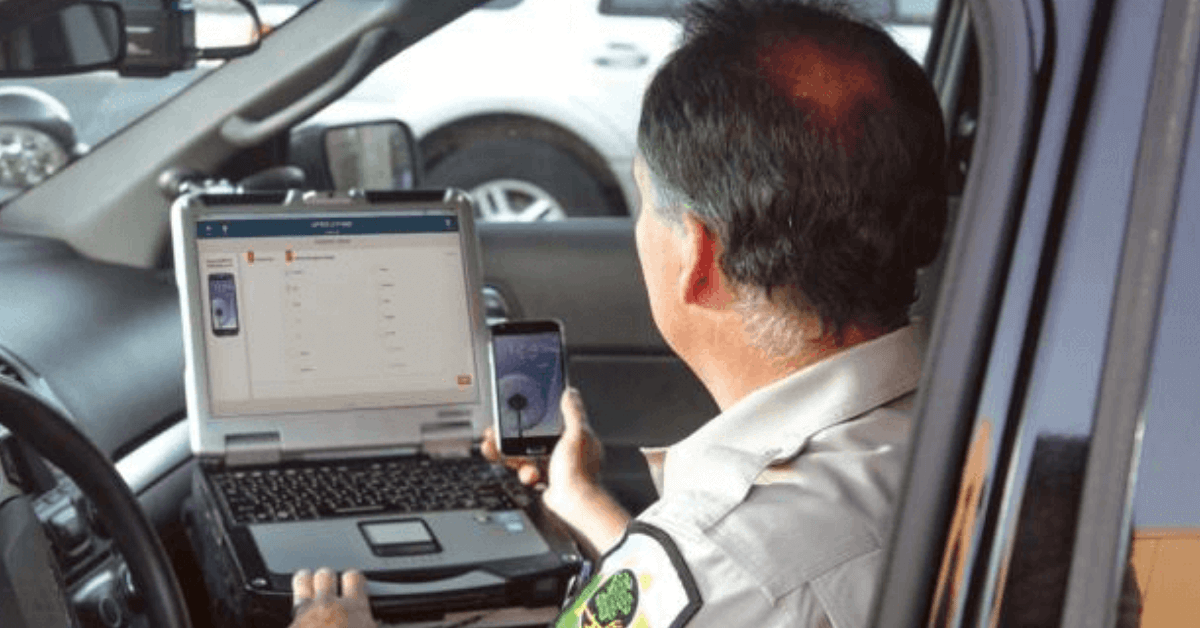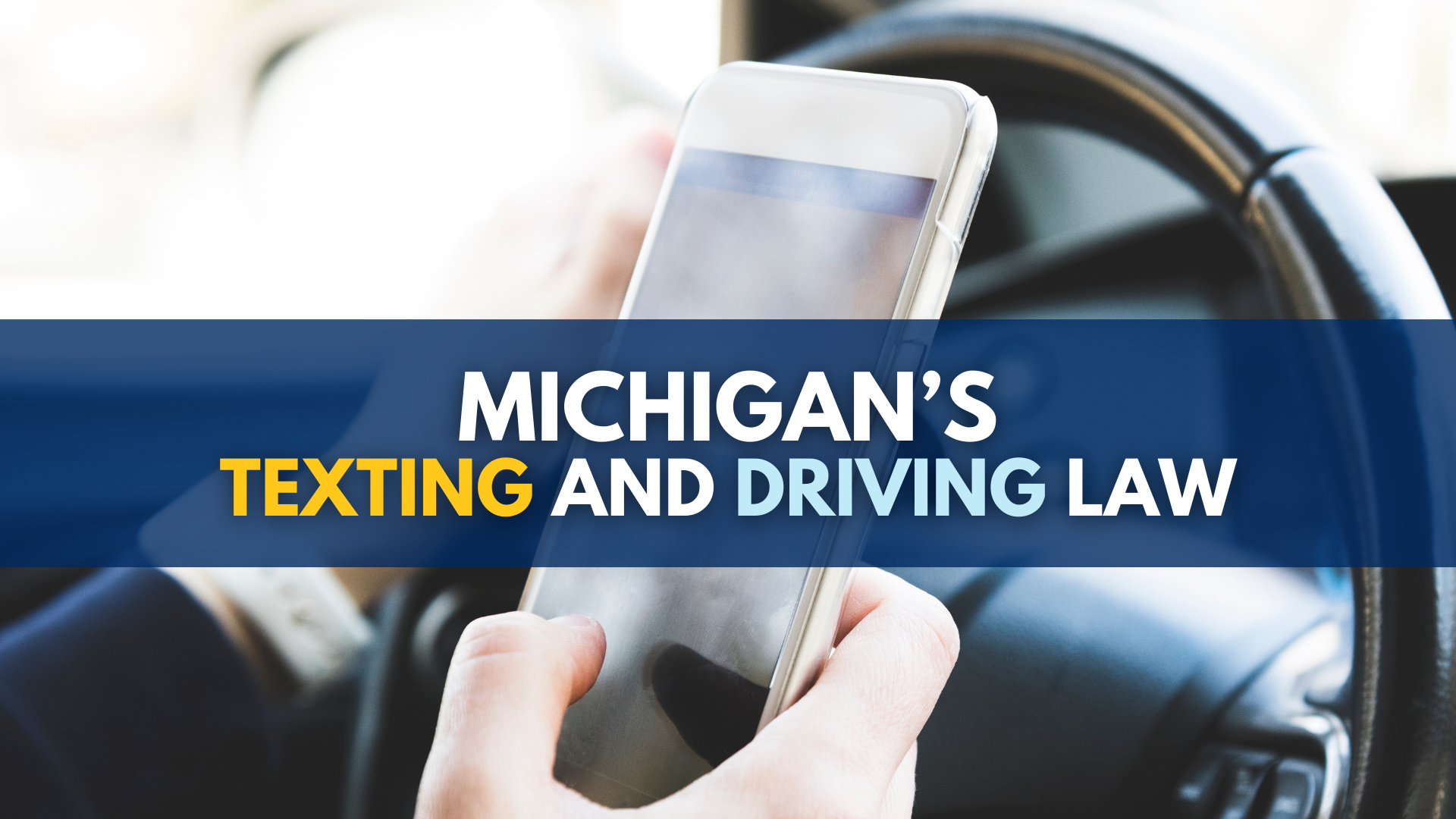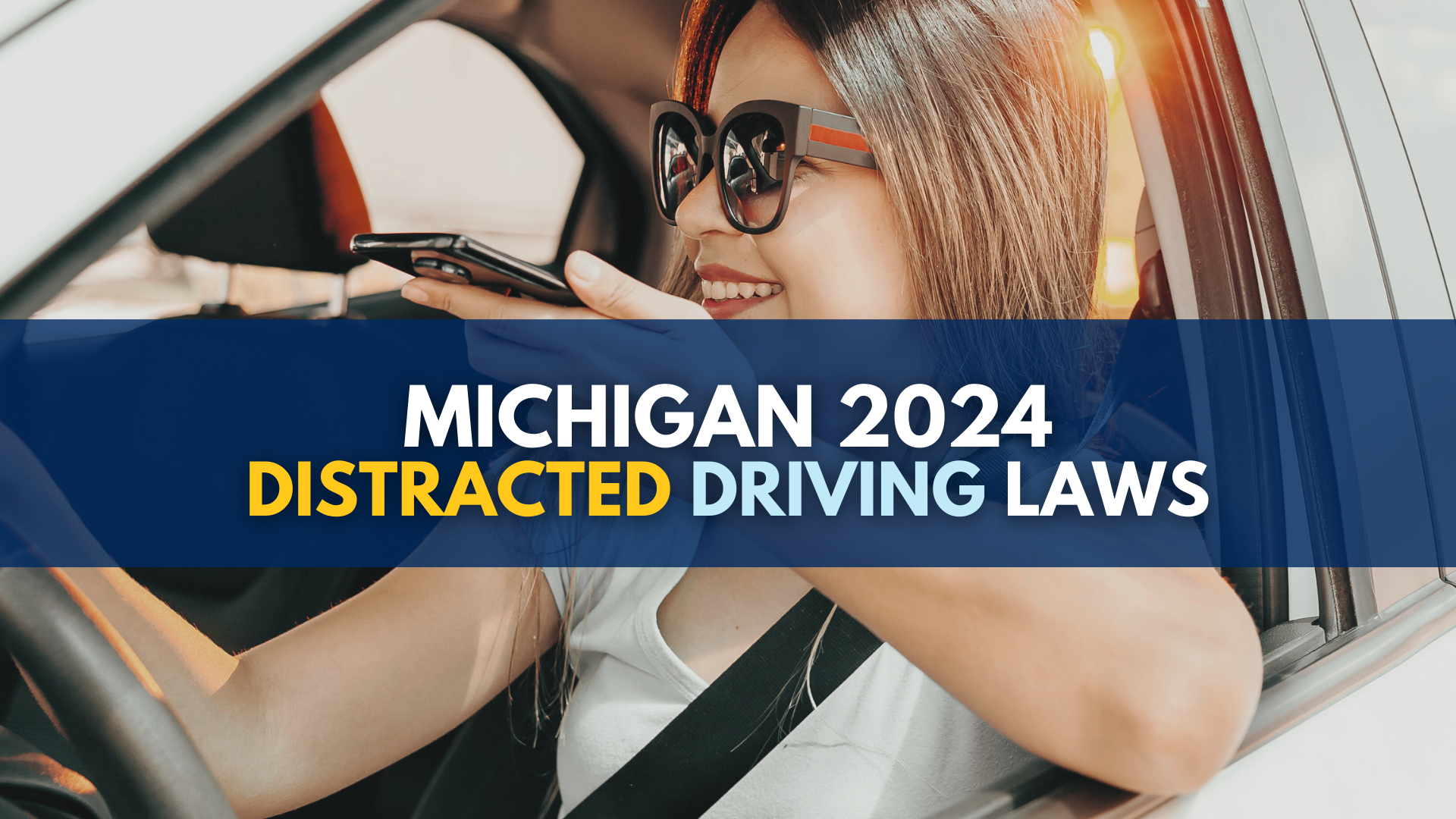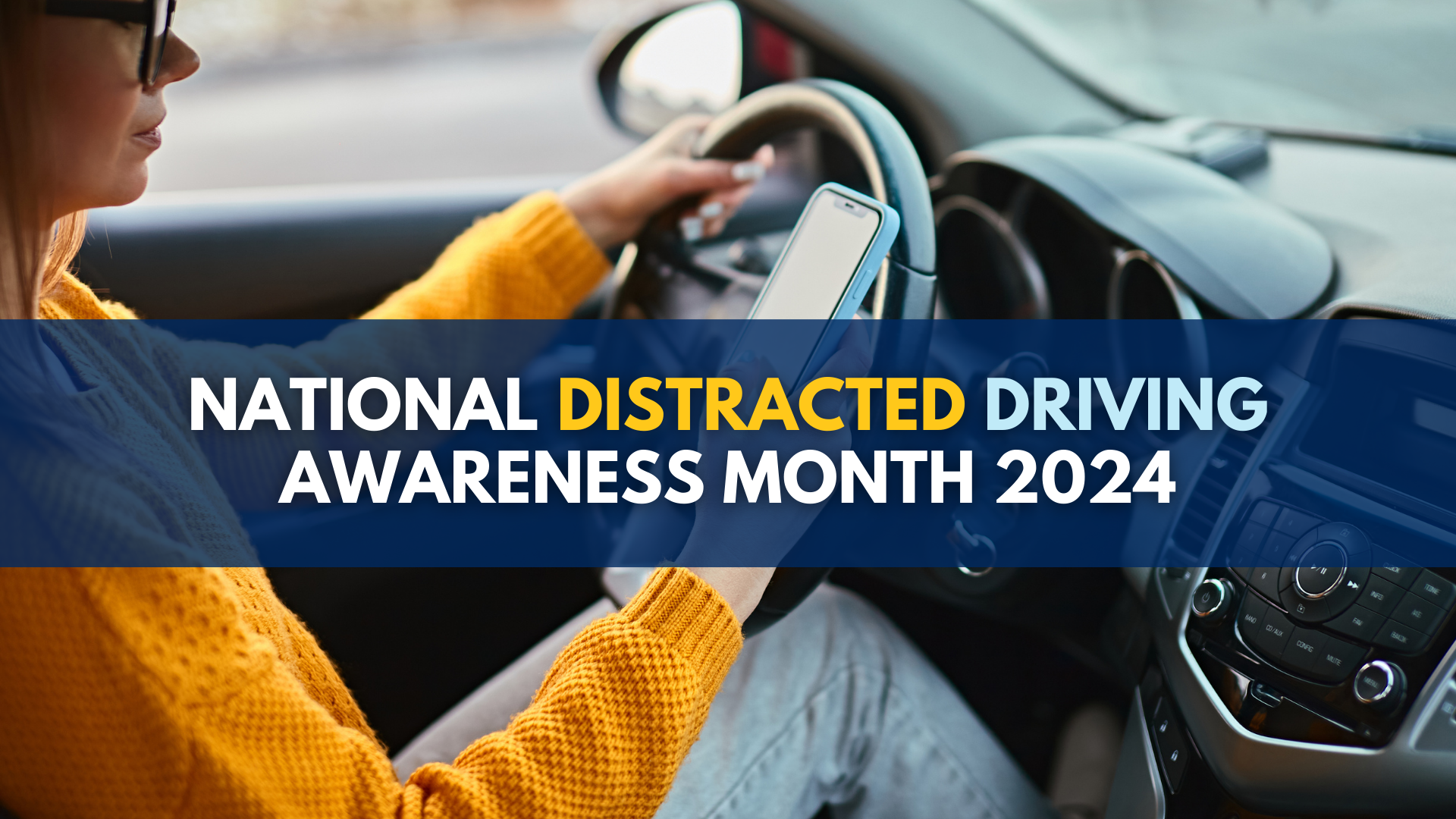‘Textalzyer’ law would allow police to conduct roadside electronic scanning to determine whether drivers were on cell phones ‘at or near the time’ of a car crash

Should Michigan pass a “textalyzer” law, much like the one being considered by the New York Legislature?
Absolutely!
And as an auto accident attorney, I believe such a law is long overdue. Why do I feel so strongly that such a law is needed? I know that a great number of my clients are being injured by people who are texting and driving. The numbers of motor vehicle accidents being caused by people driving distracted, and especially by people who are texting while driving is staggering.
But Michigan law enforcement rarely check to see if a driver who causes a car accident was texting. In fact, unless a fatality or catastrophic injury results, it’s almost certain that a police officer investigating a car accident will NOT check to see if the driver that causes the crash was texting.
So people keep texting. And people keep causing crashes because they’re driving distracted.
In New York, lawmakers are deliberating over a “textalyzer” bill (Senate Bill S6325A) that would:
- Allow police to use an “electronic scanning device” to conduct roadside inspections of the cellphones of drivers who have “been involved in an accident or collision involving damage to real or personal property, personal injury or death …”
- Limit the electronic cell phone scan to only determining whether the driver was “using” his or her cellphone “at or near the time of [the] accident or collision” – not the “content” of any communications.
- Implement an “implied consent” law – similar to the one that applies to drunk drivers – which provides that a driver who has been involved in an accident or collision is “deemed to have given consent” to the police to conduct an electronic scan of his or her cell phone.
Michigan needs a law to allow police to investigate if a driver who causes a car accident was texting – NOW
This New York bill should be embraced by Michigan lawmakers.
Texting while driving – and all of the very preventable automobile accidents that result – have now reached epidemic proportions.
But can civil liberties be preserved while public safety is protected through a texting law?
It appears the technology is available to allow police to perform an electronic scan to determine whether a text was being sent or received at or near the time of a crash. I have to admit, my knowledge of how this is done is very incomplete. I have no first-hand knowledge and everything I have heard so far has come from accident reconstruction experts at legal seminars. But if this is true, it appears to protect the privacy rights of people and allows a police officer investigating a car accident to see if a driver was texting without having to allow the police to invade that driver’s privacy or read his or her text messages.
If so, this is the obvious solution. It is one that seems to protect the public best but also preserve privacy rights.
But, for sake of argument, let’s assume the technology did not exist and a police officer would have to inspect the cell phone of a driver who just rear-ended someone. Should we allow this?
I’d come down on the side allowing the police to inspect the cell phone. Texting is just as dangerous to the public today as drunk driving. In fact, because the dangers are so similar to the public and everyone on our roads, texting while driving (and distracted driving) should be treated the same as drunk driving by police today when investigating car accidents.
Both in terms of penalties and in terms of the tools available to the police for enforcing the laws that prohibit these dangerous – and, too frequently, deadly – driving behaviors. In fact, in my December 16, 2013, blog post, “Why doesn’t Michigan treat texting while driving like drunk driving?,” I urged that:
Because “texting [while driving] is just as dangerous [as drunk driving] … texting drivers should be faced with the same serious punishments designed for drunk drivers … [such as] … [d]river’s license suspension and 6 points on the driving record for refusal to comply with [an] ‘Implied Consent’ law allowing police to inspect a driver’s cell phone and/or wireless 2-way communication device.”
Yes, that’s right.
I said “implied consent” law.
It only makes sense that suspected texting drivers (like suspected drunk drivers) should, by virtue of exercising their privilege to drive – and it is a privilege on public roads to operate a dangerous piece of machinery – be deemed to have given their “implied consent” to roadside testing. In other words, inspection of their cell phones for texting, by the police after they’ve just caused a crash and injured or killed someone.
This is essential if Michigan has any real hope of saving lives and making our roads more safe. It’s also the only way to put some teeth on our ban on texting while driving.
Although Michigan has yet to take this next – and necessary – step, I’m optimistic that may change change in light of the proactive, safety-oriented proposals being proposed by the New York Legislature’s “textalyzer” bill.
Fourth Amendment concerns with “textalyzer” bill
To address the issue of a person’s constitutional right to be free from unreasonable searches and seizures, the New York “textalzyer” bill invokes the concept of “implied consent” which is used in states around the country – including Michigan (MCL 257.625c(1)) – to require motorists who are suspected of drunk or drugged driving to submit to chemical tests of their to breath, blood and/or urine.
Here’s what New York’s Senate Bill S6325A says about “implied consent”:
- “The legislature further finds that a driver’s license is a privilege granted by the state, and maintaining such privilege requires continued compliance with established conditions enumerated in law. One such condition is implied consent, an accepted mechanism in combating driving while under the influence of alcohol. Studies have concluded that texting while driving impairs a driver to the level of .08 blood alcohol level. Therefore, it is in the state’s interest to treat this impairment with a similar methodology to that of drunk driving.”
- “Any person who operates a motor vehicle in this state shall be deemed to have given consent to field testing of his or her mobile telephone and/or portable electronic device for the purpose of determining the use thereof while operating a motor vehicle provided that such testing is conducted by or at the direction of a police officer, after such person has operated a motor vehicle involved in an accident or collision involving damage to real or personal property, personal injury or death.”
Privacy concerns
To address the issue of protecting people’s privacy in the information contained on their cell phones, the New York “textalyzer” bill specifically limits the police’s authority to inspecting phones only to determine whether texts and/or calls had been made – not the content of the texts and/or calls. Specifically, the bill provides:
- “Empowering our law enforcement with technology, which is able to immediately determine cell phone usage without an inquiry into the content will allow enforcement of these laws after an accident while still protecting essential privacy rights.”
- “‘Field testing’” through the “use of an electronic scanning device … shall be limited to determining whether the operator of a motor vehicle was using a mobile telephone or portable electronic device in violation of [state law] at or near the time of [an] accident or collision … [N]o such electronic scan shall include the content or origin of any communication or game conducted, or image or electronic data viewed, on a mobile telephone or portable electronic device.”
Dangers posed by texting drivers and drunk drivers
Research has shown that texting while driving – and even using a cellphone while driving – creates a crash risk similar to that of drunk driving.
In Michigan Auto Law’s blog post, “Who’s the most dangerous driver – Texting, drunk, high or drowsy?,” we noted:
- Texting drivers are “23 times more likely to crash”; and,
- Drunk drivers with a BAC of 0.05 to 0.09 are 11 times more likely to crash and 48 times more likely to crash with a BAC of 0.10 to 0.14. (Additionally, drunk drivers with a BAC of 0.15 and higher are 380 times more likely to crash.)
Similarly, a study entitled “A Comparison of the Cell Phone Driver and the Drunk Driver” from researchers at the University of Utah, which was published in Human Factors, found:
“[T]he impairments associated with using a cell phone while driving can be as profound as those associated with driving while drunk … [i.e.,] driving with a blood alcohol level at 0.08%.”


